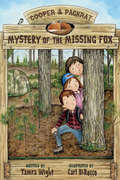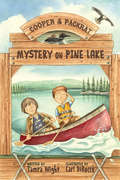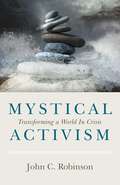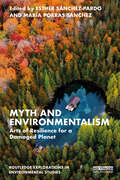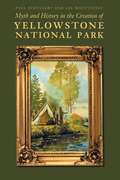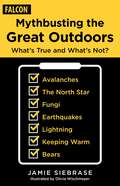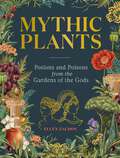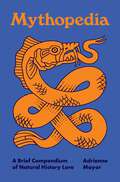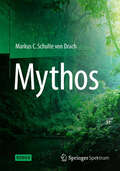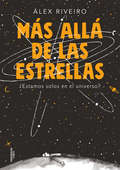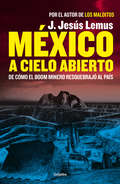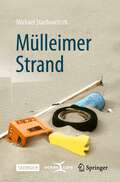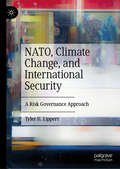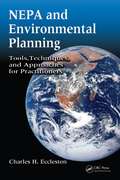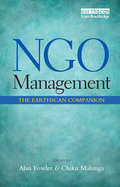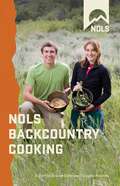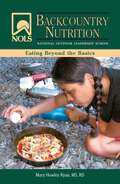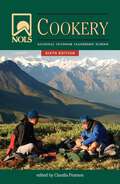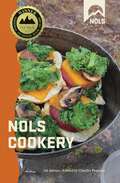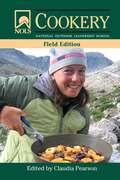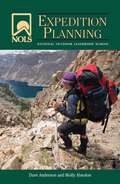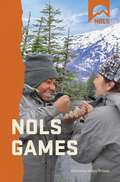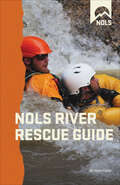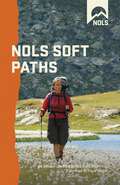- Table View
- List View
Mystery of the Missing Fox (Cooper And Packrat Ser. #3)
by Tamra WightThe stakes have never been higher for Cooper Wilder. When an accident puts Cooper's dad in the hospital, Cooper must shoulder new responsibilities at the campground. But he's distracted. First, he finds a fox caught in an illegal trap on the campground's land. Then kits start to go missing from the fox den. Who would want to steal the foxes? And why? Cooper joins forces with his friends, Packrat and Roy, to solve the mystery. The three young detectives must protect the den, find the kits, and (hopefully) rule out Summer, the new girl who lives across the lake, as a suspect. Juggling new work duties, feeling guilty about his father's accident, and desperate to help the fox kits, Cooper faces tough decisions about who--and what--should come first.
Mystery on Mirror Mountain: A Mirror Mountain Adventure (Mirror Mountain Adventure #1)
by Wynnette FraserJohnny Finlay thought living on Mirror Mountain was about the greatest thing that could happen to a kid. But then the judge said he had to go back down the mountain to school. Three years was a long time to be away from school... and friends. Everything seemed harder--especially making new friends. He didn't seem to fit in. Johnny yearns to stay on the mountain and help his Great Aunt Lou with her wild herb business. But whether he's on the mountain or in school, Johnny struggles to " let God stand up tall and strong inside him," because as Aunt Lou reminds him, "The Lord don't come into nobody just to set down and twiddle His thumbs." Eleven-year-old Johnny's fears about returning to school after a three-year absence dissipate when he meets a sympathetic teacher and makes a new friend who is interested in his life on Mirror Mountain. Read the other exciting books about life in the mountains in this series including #2. Courage on Mirror Mountain. with more on the way.
Mystery on Pine Lake: A Cooper And Packrat Mystery (Cooper And Packrat Ser. #1)
by Carl Dirocco Tamra WightCooper thought living at a campground would be cool. But summer's turning out to be all chores, no fun. Cooper's only bright spot is his new friend, Packrat, a guy who carries the world in his coat pockets and leaves his troubles behind. But trouble has come to the Wilder Family Campground and Pine Lake, where a family of loons is trying to build a nest. Someone is out to harm the loons. Is it the bully with a chip on his shoulder? The irritable camper with a shady past? Or the publicity-seeking reporter? It's up to the boys to figure out who, why, and how to stop the culprit - before it's too late.
Mystical Activism: Transforming A World In Crisis
by John C. RobinsonIn Mystical Activism, we each hold the power to change the world right where we are. To call these "end times" is not hyperbole. We are in trouble and the signs are everywhere: extreme political divisions; xenophobic violence; enormous wealth inequity; poverty and homelessness; racism, sexism, and ageism; arms buildups and unending wars; and, most critical of all, terrifying climate disruption associated with man-made global warming. We are the cause of these dark times. Driven by left-brain beliefs, illusions and obsessions, humanity races headlong toward the collapse of civilization. Fortunately, the solution to these mounting crises also lies in the human psyche, arising from a most surprising source: the right-brain&’s natural mystical consciousness. Our survival depends on whether we grasp and resolve this paradox in time.
Myth and Environmentalism: Arts of Resilience for a Damaged Planet (Routledge Explorations in Environmental Studies)
by María Porras Sánchez Esther Sánchez-PardoThis volume traces the interconnections between myth, environmentalism, narrative, poetry, comics, and innovative artistic practice, using this as a framework through which to examine strategies for repairing our unhealthy relationship with the planet. Challenging late capitalist modes encouraging mindless consumption and the degradation of human–nature relations, this collection advocates a re-evaluation of the ethical relation to "living with" and sharing the Earth. Myth and the environment have shared a rich common cultural history travelling as far back as the times of storytelling and legend, with the environment often the central theme. Following a robust introduction, the book is organized into three main sections—Myth, Disaster, and Present-Day Views on Ecological Damage; Indigenous and Afro-diasporic Myths and Ecological Knowledge; Art Practices, Myth, and Environmental Resilience—and concludes with a Coda from Jeanette Hart-Mann. The methodology draws from diverse perspectives, such as ecocriticism, new materialism, and Anthropocene studies, offering a truly interdisciplinary discussion that reflects on the dialogue among environment and myth, and a broad range of contributions are included from Canada, the United States, the Caribbean, Ukraine, Japan, Morocco, and Brazil. The book joins a long line of approaches on the interrelations between ecological and mythical thinking and criticism that goes back to the early 20th century. This volume will be of interest to students, scholars, activists, and experts in environmental humanities, myth and myth criticism, literature and art on more-than human and nature interaction, ecocriticism, environmental activism, and climate change.
Myth and History in the Creation of Yellowstone National Park
by Lee Whittlesey Paul SchulleryYellowstone National Park, a global icon of conservation and natural beauty, was born at the most improbable of times: the American Gilded Age, when altruism seemed extinct and society’s vision seemed focused solely on greed and growth. Perhaps that is why the park’s “creation myth” recounted how a few saintlike pioneer conservationists labored to set aside this unique wilderness against all odds, when in fact, the establishment of Yellowstone was the result of complex social, scientific, economic, and aesthetic forces. Paul Schullery and Lee Whittlesey, both longtime students of Yellowstone’s complex history, present the first full account of how the fairy-tale origins of the park found universal public acceptance, and of the long process by which the myth was reconsidered and replaced with a more realistic and ultimately more satisfying story.
Mythbusting the Great Outdoors: What's True and What's Not?
by Jamie SiebraseThe skeptic&’s guide to everything you thought you knew about life outside.Mysteries, misunderstandings, mistakes and unapologetic myths lurk in every corner of the great outdoors Is &“earthquake weather&” a real phenomenon? Just how dangerous are wild mushrooms? Can animals smell fear? And is moss even remotely useful for navigating through the wilderness? Mythbusting the Great Outdoors tackles a wide range of common misconceptions plaguing the world of outdoor adventure, using science to debunk beliefs even longtime nature lovers might erroneously take as fact. Do you know…why they say people lose half their body heat through their heads?how to build and extinguish a campfire according to Leave No Trace guidelines?what tools will you need to successfully navigate at night with the North Star?
Mythic Plants: Potions and Poisons from the Gardens of the Gods
by Ellen ZachosIn this beautifully illustrated book that's Song of Achilles meets Secret Life of Trees, readers will discover the plants cultivated by the Greek Gods–many of which can still be experimented with today–for a myriad of uses. In Greek mythology, plants were used for tools, intoxication, warfare, food, medicine, magic, and rituals. When Prometheus stole fire from the Olympian gods and gave it to mankind, he hid it in a stalk of giant fennel. Ancient Greeks waiting to question the oracles were given cannabis as part of their cleansing rituals. A quince fruit started the Trojan war. The goddess Demeter was so distraught when Hades kidnapped her daughter that she caused winter to blanket the earth, killing all plants. Mythic Plants focuses on how the ancient Greeks used plants in their lives and loves and conquests—some of which we can still use. Includes tips throughout for bringing these ancient plants into your garden.
Mythopedia: A Brief Compendium of Natural History Lore (Pedia Books)
by Adrienne MayorFrom acclaimed folklorist and historian Adrienne Mayor, an enchanting collection of the ancient myths that emerged out of the wonders—and disasters—of the natural worldMythopedia is a fun, fact-filled A-Z treasury of myths inspired by natural events. Bringing together fifty legends from antiquity to the present, this delightfully entertaining book takes you around the world to explore sunken kingdoms and lost cities, accursed mountains and treacherous terrains, and lethal lakes and singing sand dunes, explaining the historical background and latest science underlying each tale.As soon as humans invented language, they told stories to explain mysterious things they observed around them—on land, in the seas, and in the skies. Even though these tales are expressed in poetic or supernatural language, they contain surprisingly accurate insights and even eyewitness descriptions of catastrophic events millennia ago. Drawing on her unique insights as a pioneer in the exciting new field of geomythology, Adrienne Mayor describes how cultural memories of tsunamis, volcanic disasters, and other massive geological events can reach back thousands of years as the stories were preserved, elaborated, told, and retold across generations. She shows how geomythology is expanding our understanding of our planet&’s history over eons, revealing the human desire to explain nature and weave imaginative stories intertwined with keen observation, rational speculation, and memory.With captivating drawings by Michele Angel, Mythopedia is a compendium of many marvels, from the Hindu monkey god Hanuman and his army of bridge-building primates to the terrifying sand demon Shensha shen of China, the gnawing glaciers of Austria, and the vengeful fish-headed snake god Nyami Nyami of Africa&’s Zambezi River.Features a cloth cover with an elaborate foil-stamped design
Mythos
by Markus C Schulte von DrachEine Expedition ins Herz des Dschungels. Eine Reise an den Anfang und das Ende des Glaubens. Eine abenteuerliche Auseinandersetzung mit der Religion und der Evolution. Im Jahr 1539 begegnet der spanische Konquistador Juan de la Torre im Amazonasdschungel dem Teufel. Als fast 500 Jahre später die deutsche Schriftkundlerin Nora Tilly im Indienarchiv von Sevilla auf Dokumente des Spaniers stößt, entdeckt sie Hinweise auf einen Inka-Schatz. Doch bald muss sie feststellen, dass sie nicht die einzige ist, die sich auf den Weg macht, um das Gold zu finden. Die irische Journalistin Brea MacLoughlin reist mit einer Delegation katholischer Geistlicher ebenfalls nach Peru, um ein angebliches Wunder in den Anden zu überprüfen. Zu dieser Delegation gehört auch der junge Priester Arnaud d'Albret, der in Südamerika über eine ihm verbotene Liebe hinwegzukommen hofft. Nach dem gewaltsamen Tod seines Mentors schließt d'Albret sich Nora Tilly an. Auch Brea MacLoughlin folgt der Expedition der Schatzsucher. Im Dschungel Perus entdeckt unterdessen der Biologiestudent Francisco Pérez etwas, das eigentlich nicht existieren dürfte: das fünfzehn Millionen Jahre alte Fossil eines Riesenkrokodils, in dessen Schädel eine Pfeilspitze steckt. Der Versuch, dieses Rätsel zu lösen, führt ihn schließlich mit den Schatzjägern aus Europa zusammen. Doch was die Expedition im Dschungel erwartet, ist nicht nur das Gold der Inka. Tief im Wald stoßen sie auf etwas, das ihr Weltbild in Stücke reißt. ......... "Eine abenteuerliche Melange aus Dawkins' Gotteswahn, Indiana Jones und Jurassic Park. Schulte von Drach gelingt, was Dan Brown nie schaffte: den Leser zu fesseln, ohne seinen Verstand zu lähmen. Absolut empfehlenswert!" Michael Schmidt-Salomon, Philosoph und Schriftsteller, Vorstandssprecher der Giordano-Bruno-Stiftung, Autor von "Jenseits von Gut und Böse" "Wie viel Menschenwerk steckt in der Religion? Im Unterschied zum ätzenden Stil neoatheistischer Gotteswahn-Polemik setzt dieses Buch auf eine Strategie à la Umberto Eco: Der Reigen religionskritischer Überlegungen ist eingepackt in eine Rahmenhandlung, deren Spannung - Science-Fiction und Thriller im besten Sinn - den Leser mitnimmt zu den Etappen der intellektuellen Auseinandersetzung." Christian Kummer, Biologe, Philosoph und Jesuit, Professor an der Hochschule für Philosophie in München, Autor von "Der Fall Darwin" _____ Terra X und Theodizee, Evolution und El Dorado, Schatzjagd und Gottessuche - Markus C. Schulte von Drachs neuer Roman entführt Sie auf eine abenteuerliche Reise um die halbe Welt und zurück bis ins 16. Jahrhundert: Von Sevilla, Kismayoo, Florida und Iquitos aus machen sich seine Helden auf den Weg ins Herz des Amazonas-Regenwaldes. Auf der Suche nach dem legendären Inka-Gold, einem unglaublichen Fossil und ihrem Seelenfrieden stoßen ein französischer Priester, eine deutsche Schatzjägerin, eine irische Journalistin, ein peruanischer Biologiestudent und ein türkischer Kreationist auf die Spuren des Matararo. Doch gibt es dieses Wesen überhaupt? Lassen Sie sich von den Abenteuern genauso fesseln wie von den Auseinandersetzungen über Religion und Wissenschaft, die diesen Thriller so außergewöhnlich machen. Folgen Sie den unterschiedlichen Persönlichkeiten auf ihrem Weg, bis am Ende alle gemeinsam vor einer einzigen Aufgabe stehen: zu überleben.
Más allá de las estrellas: ¿Estamos solos en el universo?
by Álex Riveiro¿Hay vida en otros lugares del Sistema Solar? ¿Cuántas civilizaciones pueden existir en la galaxia? ¿Nos conoceremos algún día? Desde pequeños, nos fascinan las estrellas y los planetas. En seguida nos preguntamos si en su superficie podría haber criaturas, como tú y como yo, preguntándose si en otros lugares de la galaxia habrá seres como ellos... La avalancha de preguntas es imparable: el ser humano es curioso por naturaleza. Si alguna vez te has hecho alguna de estas preguntas, este libro es para ti. De la mano de Alex Riveiro, autor de Hacia las estrellas. Una breve guía del universo, y creador de Astrobitácora, el podcast de referencia de astronomía en español.
México a cielo abierto: De cómo el boom minero resquebrajó al país
by J. Jesús LemusEntre 2001 y 2017 las mineras extrajeron de México una cantidad equivalente al doble del oro y la mitad de la plata que los españoles se llevaron en los 300 años que duró la Colonia. La minería es uno de los negocios más jugosos del país... pero no para los trabajadores o las comunidades donde se desarrolla. Deja una utilidad anual de $200,000 millones de dólares, de los cuales muy pocos se ven reflejados en la calidad de vida de la sociedad mexicana, que en cambio sí sufre los estragos de la explotación desmesurada. Solapadas por el gobierno desde hace al menos veinticinco años, cuando se firmó el Tratado de Libre Comercio de América del Norte, cerca de 267 compañías -principalmente canadienses y estadounidenses- operan en México sin escrúpulos ni restricciones. Lo peor de todo es que a su alrededor convergen los peores males que aquejan a nuestro país: corrupción, desgobierno, narcotráfico, violencia, pobreza y desplazamiento. Esta investigación, que el reportero J. Jesús Lemus realizó por los cuatro rincones del país, revela por primera vez las operaciones ilegales de la industria minera que, por increíble que parezca, opacan la brutalidad del narcotráfico, y lanza una alerta urgente sobre los peligros que representan para la soberanía y la supervivencia de nuestro país. Parte del acervo real y existente, que por límite de espacio y secrecía profesional no se agregó al mismo: https://randomhouse.box.com/s/h0f9nbst7vejrwrekkcm0rp43wrwj9g4 https://randomhouse.box.com/s/2kmkguft16z75z6hq35nkxdfrvt51vsg
Mülleimer Strand
by Michael StachowitschDieses reich illustrierte Buch ist der ideale Führer zu den Gegenständen, die an den Stränden der Welt herumliegen. Vergessen Sie Muscheln und andere Fauna und Flora. Hier finden Sie, was ein Strandbesucher heutzutage am ehesten antreffen kann: Glas, Plastik, Holz, Metall, Papier, Öl und andere Quellen der Meeresverschmutzung!Mit fast 700 Fotos zeigt dieser Leitfaden die ganze Bandbreite der Müllgegenstände im Meer, die jeweils mit einem Augenzwinkern und einer Prise Humor vorgestellt werden. Darüber hinaus liefert der Autor ausführliche Informationen zu diesen Gegenständen. Sie werden alles Wissenswerte über sie erfahren. Dazu gehören nicht nur ihre Herkunft und ihre Zersetzungsstadien. Sie erfahren, welche Bedrohung die einzelnen Gegenstände für diese wunderschöne Umwelt darstellen, und erhalten Informationen über Präventionsstrategien, Empfehlungen für die Reinigung, alternative Produkte sowie Recycling- und Upcycling-Ideen. Neben dem ästhetischen Aspekt stellt der Müll im Meer auch eine Bedrohung für die Tierwelt, die menschliche Gesundheit und das wirtschaftliche Wohlergehen dar. Dieses Buch gibt Ihnen das nötige Wissen an die Hand, um diese schändlichen und oft gefährlichen Schandflecke zu bekämpfen. Werden Sie ein Stranddetektiv! Bereisen Sie mit dieser ultimativen Strandlektüre die beliebtesten Reiseziele der Welt und helfen Sie mit, diese faszinierenden Umgebungen in ihrer natürlichen Schönheit wiederherzustellen.
NATO, Climate Change, and International Security: A Risk Governance Approach
by Tyler H. LippertThis book offers a prospective analysis of the anticipated security consequences of climate change in relation to the North Atlantic Treaty Organization (NATO). Using climate and security literature to complement recent foresight and scenario analysis developed by NATO, the author applies the International Risk Governance Council’s (IRGC) Risk Governance Framework to identify the considerations and actions that could assist NATO in a context where climate and environmental factors more intensively shape security. Tyler Lippert explores how climate change has the potential to increase the need for humanitarian assistance and disaster response, to create tension over shared resources, to renew and enhance geo-political interest in the Arctic, and to deepen concern with respect to the Middle East and North Africa (MENA). Within this new political and environmental reality, NATO must consider how to adapt to meet new demands, prepare for new security challenges, as well as manage unforeseen consequences. Offering a corrective, this book identifies near-term actions for NATO to improve its risk governance posture, providing a basis upon which longer-range policy considerations can be developed. This analysis is only the opening salvo of what is likely to be a complicated process that spans many years, if not decades. However, in mapping the risk governance dimensions to the security and climate nexus from the perspective of NATO, Lippert provides a foundation for risk-based policy planning for NATO. The book will be of immense value to policy and decision makers: NATO leadership and its affiliated organizations as well as to academics across a broad span of subject areas, particularly environmental sociology, defense and foreign policy, and the political sciences.
NEPA and Environmental Planning: Tools, Techniques, and Approaches for Practitioners
by Charles H. EcclestonA tool for predicting environmental impacts, the National Environmental Policy Act (NEPA) can also be used to predict the impacts of natural disasters and potential terrorist attacks. This book demonstrates how to use NEPA as a framework to support decision-making. It includes examples that demonstrate how NEPA can be efficiently integrated with other processes such as ISO 14001, P2, and Adaptive Management. It provides proven tools, techniques, and approaches for streamlining NEPA and environmental planning strategies that reduce the potential for controversy and criticism. It is the first text that covers recent changes to NEPA and the new CEQ guidance expected to be issued.
NGO Management: The Earthscan Companion (Earthscan Reader Ser.)
by Alan Fowler; Chiku MalungaThe task environment of NGOs is changing rapidly and significantly, making new demands on their management and leadership. This Companion discusses the complexities involved. It illustrates how NGOs can maintain performance and remain agile amidst increasing uncertainties. These factors include the position of NGOs in civil society, their involvement in governance and coping with the effects of the securitisation of international aid. Complementing The Earthscan Reader in NGO Management, selected contributions and specially commissioned pieces from NGO thought-leaders and practitioners, provide the reader with insights on the emerging thinking, competences and practices needed for success in managing and leading tomorrow's NGOs.
NOLS Backcountry Cooking (NOLS Library)
by Claudia Pearson, Joanne KuntzMeal planning for short outdoor trips (5 days or less) and small groups (1-4 people). 32 recipes including breakfasts, dinners, beverages, desserts, and snacks. Cut down on expense of freeze-dried plus eat better nutritionally.
NOLS Backcountry Nutrition (NOLS Library)
by Mary Howley RyanDiscover how nutrition can help you enjoy backcountry adventure. Practical, science-based information presented in an easy-to-understand, useful way.
NOLS Cookery
by Claudia PearsonThe keystone of the NOLS library, the Cookery has been a trusted and reliable resource used in the field by NOLS students and instructors for 50 years. First published by Stackpole in 1991, NOLS Cookery is in its 7th edition with 125,000 copies in print. Whether you&’re a first-time backpacker or a seasoned backcountry cook, you&’ll learn from the cookbook used by the experts in outdoor education. With more than 2 million meals prepared in the wilderness, NOLS speaks with authority on the art of outdoor cooking. This new edition includes important nutritional information that supports the 200 recipes plus a special section of recipes from around the world, new recipes for lightweight backpacking and recipes that can be prepared in advance of the trip.
NOLS Cookery (NOLS Library)
by Claudia PearsonThe keystone of the NOLS library, the Cookery has been a trusted and reliable resource used in the field by NOLS students and instructors for 50 years. First published by Stackpole in 1991, NOLS Cookery is in its 7th edition with 125,000 copies in print. Whether you&’re a first-time backpacker or a seasoned backcountry cook, you&’ll learn from the cookbook used by the experts in outdoor education. With more than 2 million meals prepared in the wilderness, NOLS speaks with authority on the art of outdoor cooking. This new edition includes important nutritional information that supports the 200 recipes plus a special section of recipes from around the world, new recipes for lightweight backpacking and recipes that can be prepared in advance of the trip.
NOLS Cookery (NOLS Library)
by Claudia PearsonThe keystone of the NOLS library, the Cookery has been a trusted and reliable resource used in the field by NOLS students and instructors for 50 years. First published by Stackpole in 1991, NOLS Cookery is in its 7th edition with 125,000 copies in print. Whether you&’re a first-time backpacker or a seasoned backcountry cook, you&’ll learn from the cookbook used by the experts in outdoor education. With more than 2 million meals prepared in the wilderness, NOLS speaks with authority on the art of outdoor cooking. This new edition includes important nutritional information that supports the 200 recipes plus a special section of recipes from around the world, new recipes for lightweight backpacking and recipes that can be prepared in advance of the trip.
NOLS Expedition Planning (NOLS Library)
by Dave Anderson Molly Absolon• The guide for planning a successful trip, short or long • Research access to public land, domestic and international • Create a budget and find additional funding • Choose essential gear, with checklists for personal and group gear • Plan food and fuel requirements • How to prepare mentally and physically • Health issues, including insurance, illnesses, and injuries • Transportation and lodging • How to deal with risks in the wilderness • Leave No Trace principles for sustainable travel
NOLS Games
by Helen WilsonPlaying games while on courses is a part of the NOLS life, and course leaders are great resources for games that work—those that are popular and are used year after year. This book contains 100 tried-and-true, field-tested games collected from and vetted by NOLS instructors: getting-to-know-you games, name games, team games for encouraging cooperation and leadership, games on the trail and in the water, and brain/creative/word games.
NOLS River Rescue Guide (NOLS Library)
by Nate OstisThe award-winning instructional guide for safety, rescue, and recovery techniques—with true stories from whitewater legends. Rescue training is essential for anyone who spends significant time on the river. The NOLS River Rescue Guide is an ideal reference for pre-trip planning and your expedition drybag. The fully illustrated text lays out tools and systems for managing risk in this dynamic, hazardous environment. Throughout, personal stories from whitewater legends—including Les Bechdel, Charlie Wahlbridge, Jim Coffey, and Kent Ford—examine the causes and outcomes of real-world incidents. The NOS River Rescue Guide is a compendium of proven swiftwater risk management strategies from an organization with fifty years of experience teaching on the rivers of the world. · Learn advice for identifying and responding to risks on the water · Covers all essential equipment you'll need · Over 170 color photos and sixty-seven illustrations · Includes personal stories from whitewater legends2015 National Outdoor Book Award winner for Best Instructional.
NOLS Soft Paths (NOLS Library)
by David Cole Rich Brame• Leave No Trace, minimum impact skills and ethics • New research and field experience prescribe better minimum-impact techniques for wilderness use • Expanded information on camping practices • How far you should camp from water, where to pitch your tent, how to build a fire or if you should build one in the first place • Respecting and caring for wildlands, doing your part to protect our limited resources and future recreation opportunities • Trampling, litter, waste disposal, fire use, wildlife health, and protecting cultural resources
